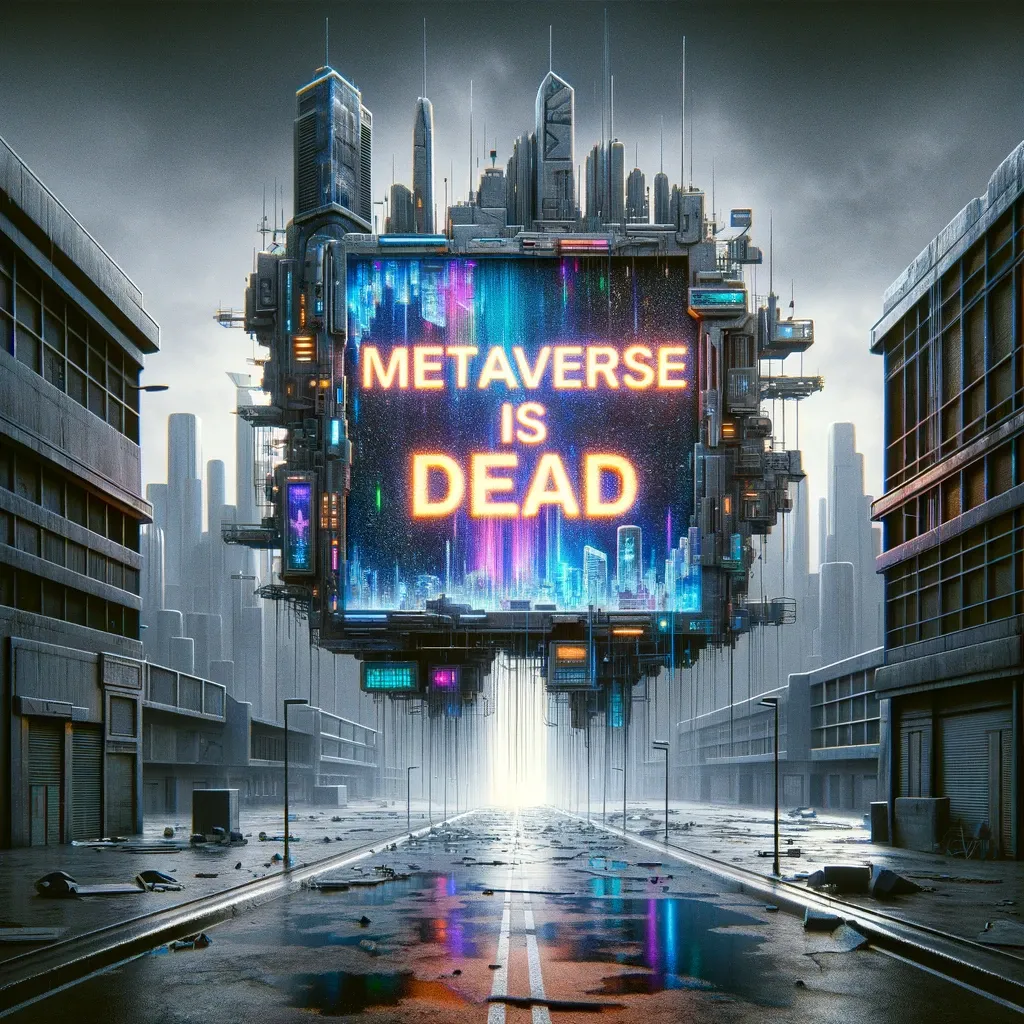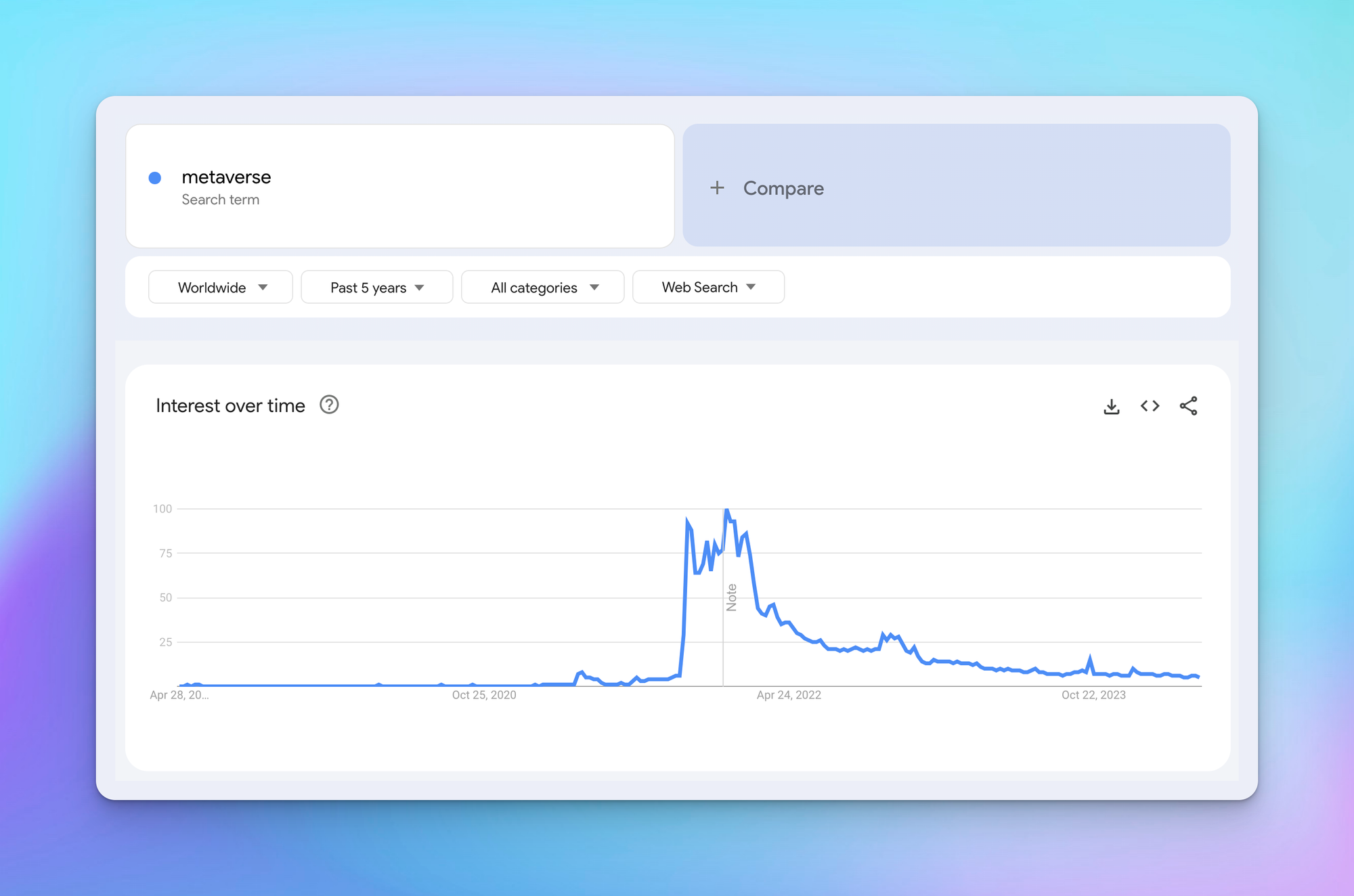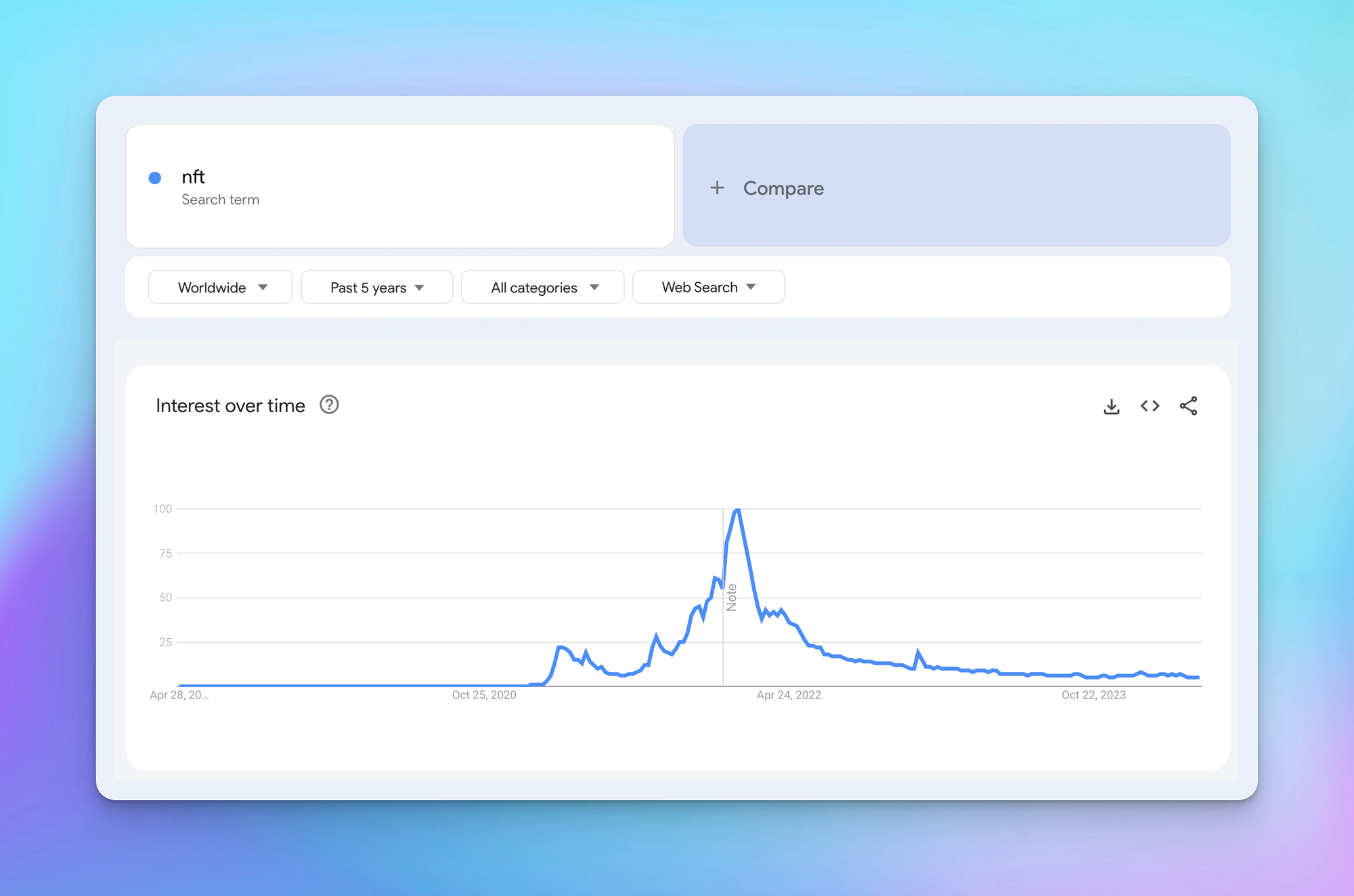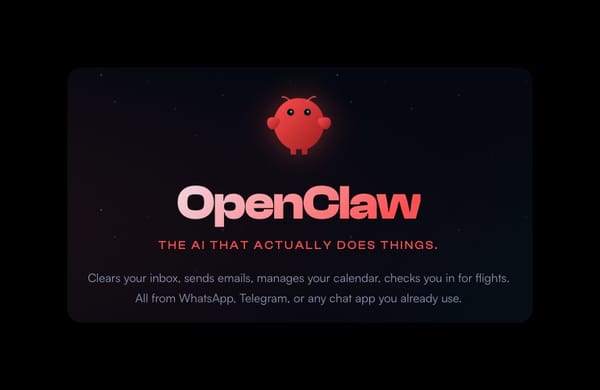The Metaverse is Dead
The Metaverse trend has declined due to practical issues, while AI continues to grow in significant areas such as enterprise software, demonstrating its broader utility and long-term viability.

I believe peak Metaverse is firmly in our rearview mirror. According to Google Trends, Facebook's announcement of rebranding to Meta on October 21, 2021, was the catalyst for the upward trend in Metaverse. Four short months later, we hit peak Metaverse.

Like many of us, I, too, was captivated by the allure of the Metaverse, believing it to be the next big thing. We were all caught up in the NFT mania, a collective frenzy that further stoked the fires of the Metaverse hype as NFTs soared in value.
Both NFTs and the Metaverse resemble the Swiss Alps. There is a massive run-up, followed by a drop-off shortly after, which resembles a Swiss mountain peak. It's easy now to see the enormous peak, but how do we spot future fads versus technology that can sustain a hype cycle?

Will we see Metaverse projects continue? Sure. In Matthew Ball's book "The Metaverse", Ball defines the Metaverse as an extensive online realm that integrates virtual and augmented realities, creating interconnected experiences that span various digital platforms. The Metaverse would be a connector between platforms and experiences. So, according to this definition, the Metaverse should live on.
The Metaverse, which we were sold, is Dead!
Stay Updated
Get actionable AI & tech insights delivered every Friday. No fluff, just value.
Subscribe to The Weekly Byte →We are not meeting in the Metaverse or wearing big VR headsets all day. They are fun for an hour or so, but people will not wear them the entire day to interact with their colleagues. We already have Teams/Zoom fatigue, and now we want to immerse ourselves deeper into this. No way!
Do I have 3 VR headsets sitting on the shelf? Yup, and I don't plan on buying more anytime soon as I'm disappointed every time.
Even the company that rebranded itself after the Metaverse left the chat and turned the focus away from the Metaverse to AI instead. Meta is buying Nvidia GPUs by the 1000s and is building some fantastic Open Source LLM tools for AI, like Llama 3. Meta is becoming more of an Open Source company than OpenAI.
Now that AI is the next big thing, I'm not running like a bull into a china shop. However, if we zoom out and look at AI over the years, it steadily grows and does not have a sharp peak like the Metaverse or NFTs as the trend continues on months later.

Does this mean it might die tomorrow? Maybe! But, something I couldn't do with either the Metaverse or NFTs was being able to build something of value, whereas, with AI, I have built several useful tools myself, which I continue to use.
Like Docker, AI enables developers to build, ship, and run applications more quickly. AI also allows the masses to create solutions, answer questions, or automate tasks, enabling them to help build communities and products.
AI has existed since the 1950s, and Alan Turing was already circulating papers on Artificial Intelligence in 1941. So AI is not new, but AI in its current form of GPTs and LLMs has only been around since 2018.
Companies are hyping AI, misbranding products as AI, and more. We are in a hype cycle, but AI has Enterprise software adoption, and governments are rushing to regulate, unlike Metaverse and NFTs. Whenever Enterprises and governments get involved this is a positive signal.
Am I rushing into AI? Yes, because I never learn...



